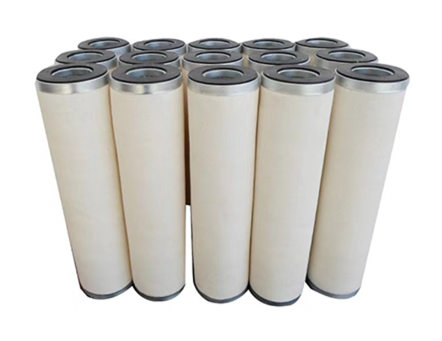 Tel:
+8618931101301
Tel:
+8618931101301
Aug . 06, 2024 10:21 Back to list
Improving Efficiency and Performance of Gas Turbine Air Intake Filtration Systems for Optimal Operation
Gas Turbine Air Intake Filter An Essential Component for Optimal Performance
Gas turbines are widely used in various applications, including power generation, aviation, and industrial processes. One critical component that directly influences the performance and efficiency of these turbines is the air intake filter. This article will explore the importance of air intake filters in gas turbines, their operational mechanisms, and the implications of choosing the right filter.
Importance of Air Intake Filters
The primary function of an air intake filter in a gas turbine is to remove contaminants from the ambient air before it enters the turbine. This step is crucial because gas turbines operate on a principle of combustion, relying on high-pressure and high-temperature air to sustain the combustion of fuel. Any impurities such as dust, pollen, and industrial particulates can compromise engine performance, leading to reduced efficiency and increased wear and tear.
Moreover, unfiltered air can result in damage to critical turbine components like blades and combustion chambers. This damage not only leads to costly repairs but also reduces the lifespan of the turbine. Consequently, investing in a reliable air intake filter is essential for maintaining system integrity, ensuring optimal performance, and minimizing maintenance costs.
Operational Mechanisms
Gas turbine air intake filters are typically composed of multiple layers of filtration media, which can include fiberglass, synthetic fibers, or even metal mesh. These media are designed to trap particles of varying sizes, from large debris to fine dust, while allowing a high volume of air to pass through. The efficiency of these filters is measured using a metric known as the Minimum Efficiency Reporting Value (MERV), which ranks their filtering capabilities.
gas turbine air intake filter

High-quality filters can achieve a MERV rating between 8 and 13, effectively capturing a significant percentage of airborne particles. Advanced filters may include features such as pleated designs to increase surface area, allowing for higher airflow and better filtration. Additionally, some filters are coated with hydrophobic materials to repel moisture, further enhancing their performance in humid conditions.
Choosing the Right Air Intake Filter
Selecting the appropriate air intake filter for a gas turbine involves several considerations. First, the operating environment plays a significant role. Turbines situated in arid or dusty locations require filters with higher dirt-holding capacity and robustness to withstand those conditions. Conversely, turbines operating in cleaner environments may benefit from lighter, more efficient filters.
Another critical factor is the balance between airflow and filtration efficiency. While efficient filters are essential for protecting turbine components, excessively restrictive filters can impede airflow, leading to reduced turbine performance and increased energy costs. Therefore, conducting thorough assessments of filter performance and turbine specifications is crucial.
Conclusion
In summary, gas turbine air intake filters are vital in safeguarding turbine performance and durability. Investing in high-quality filters not only protects the turbine's internal mechanisms from damage but also ensures optimal operation and efficiency. As gas turbine technology continues to evolve, so too will the designs and capabilities of air intake filters, offering enhanced performance to meet the demands of modern applications. Therefore, selecting the right air intake filter is not just a maintenance decision; it's a strategic move towards achieving long-term operational excellence.
-
Working principle of high-efficiency dust filter elementNewsJun.26,2025
-
The truth about washable filters: Does repeated use really not affect efficiency?NewsJun.25,2025
-
Effect of humidity on the performance of activated carbon filter elementsNewsJun.24,2025
-
Material selection considerations for dust removal filter elements under high temperature conditionsNewsJun.23,2025
-
Cold knowledge of air filters: Why are some designed to be pleated?NewsJun.16,2025
-
Factory direct supply! High-precision air filter element wholesale and customizationNewsJun.12,2025

 Email:
Email:





